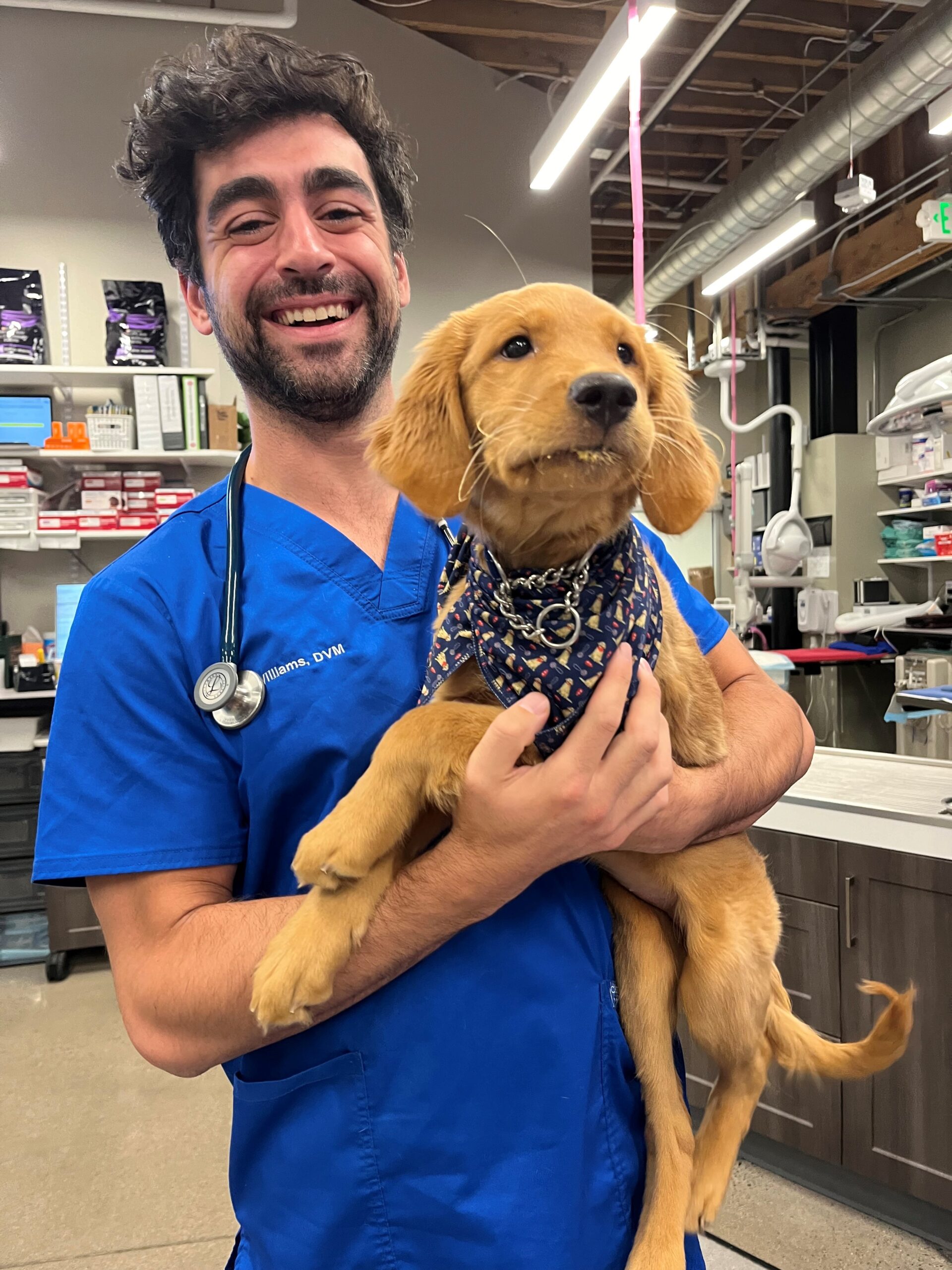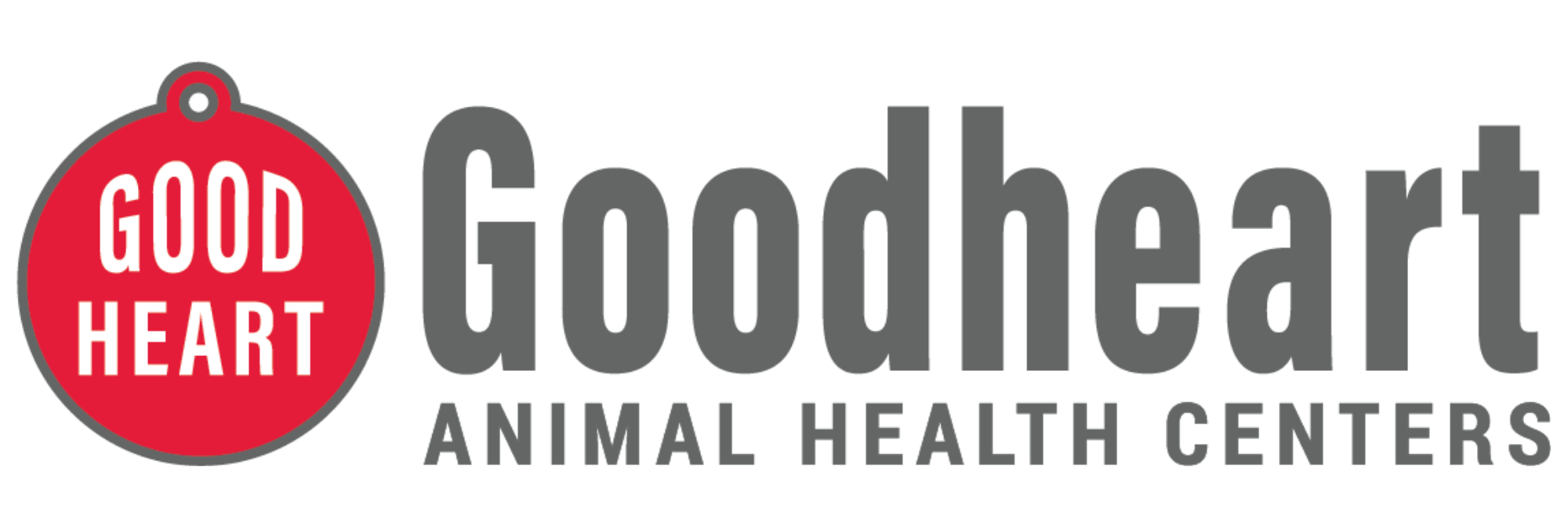2 min read
When Lucy the doodle stopped eating in May, her dog mom Audrey called the vet after two days. Lucy got medication for nausea and fluids for dehydration. It turns out, her pup needed a new type of food that better suited her stomach.
It’s alarming when your pet stops eating. A decreased appetite, known as hyporexia, can be a sign of various underlying issues – some serious and other not. Dr Jesse Wiliams from Goodheart Broadway has tips and advice if your pet stops eating.
Knowing when to be concerned and how to respond can make all the difference in your pet’s health.

Why do dogs stop eating their food?
Dogs may stop eating for several reasons.
-They might have eaten something silly, like a sock or toy, or other inanimate object that isn’t moving through as well as we’d like.
-They might have eaten something that didn’t agree with them, leading to a temporary feeling of sickness. This could be a high-fat treat or an unusual item from the backyard. No need to worry. This kind of irritation is usually subtle, and most dogs will resume eating within a meal or two.
-Nausea and pain. “In my experience,” says Dr Wiliams, “this usually comes from back or neck issues. Not so much from tooth pain, as Dr Google might report.”
-Some dogs are just picky eaters.
-Although less common, not eating can be a sign that something is going on outside the GI tract. This usually applies to older friends, where there is a gradual reduction in appetite.
Why is my dog not eating his food but acting normal?
Great question! There’s no need for immediate concern if your dog is acting normally, is responsive, and is alert.
You can come into the vet hospital if you’re concerned, but we’re also comfortable saying to try a bland diet for the next meal. A bland diet includes boiled plain chicken breast (without seasoning, skin, or bones) and white rice. If your dog has a food allergy, offer them boiled eggs, cottage cheese, or plain pasta.
Note how long they’ve gone without eating. If it’s been more than two meals, it’s a good idea to call your veterinarian to check in.
Trust your instincts—if you feel something is off, don’t hesitate to reach out.
When should I worry about my dog not eating?
Call your veterinarian at Goodheart if your dog has missed more than two meals, becomes lethargic, or develops symptoms like vomiting (Link to each site’s vomit blog from last month) or loose stools. These signs indicate that the issue may be more serious.
What should I do if my dog can’t eat?
Offer a bland diet if your dog refuses to eat their regular food, and there are no dietary restrictions from a food allergy, try offering a bland diet of boiled plain chicken breast (without seasoning, skin, or bones) and white rice.
Alternatives include boiled eggs, cottage cheese, or pasta for dogs with food allergies.
Remember, this kind of diet is not a long-term solution because it’s not nutritionally complete. If the issue persists, call us about a balanced, commercially available bland diet.
How long is it okay for a dog not to eat?
If your dog goes without food for 12-24 hours, it’s time to contact your veterinarian.
The risk of dehydration or electrolyte imbalance increases with time, and your Goodheart vet can provide guidance on the next steps.
What can you give a dog to stimulate their appetite?
There are no over-the-counter options for stimulating a dog’s appetite. Veterinarians can also prescribe medicine. Goodheart uses an oral solution called Entyce, which stimulates hunger. But we usually reserve appetite stimulants until we’ve ruled out a few important things.
Since every dog is different, it’s important to work with your vet to determine the best approach for your pet.
Can dogs recover from not eating?
Yes! With the appropriate care, dogs can recover. It’s important to address the underlying cause and provide supportive care as needed.
How can I encourage my dog to eat?
Your dog might be reluctant to eat at first, just like humans recover slowly after feeling nauseous for a few days.
-Continue with a bland diet or warm their food to enhance its smell.
-You can also try hand-feeding your pet small amounts.
If these methods don’t work, call your veterinarian.
Why is my dog only drinking water and not eating?
Increased thirst without eating can be due to nausea, irritation, or certain medical conditions. Monitoring your dog’s behavior and calling Goodheart is important if this continues.
Do dogs go through phases of not eating?
No, dogs don’t typically go through phases of not eating without a cause. There’s usually an underlying reason, such as nausea or pain.
Observe your pet’s patterns and consult your veterinarian to identify and address the issue.
Why won’t my dog eat his food but will eat human food?
If your dog is rejecting their food but eagerly eating human food, they might be developing finicky eating habits.
However, it’s essential to rule out any underlying medical issues that could be contributing to this behavior. Call us if you find yourself in this situation.
When should I take my dog to the vet if they’re not eating?
If your dog has missed two consecutive meals, it’s time to visit the vet. Early intervention can prevent more serious health issues from developing.
Goodheart helped get Lucy back to good health. Audrey changed her diet to a low fat better suited her stomach. She’s been eating well ever since.
You know your pet best. Monitor their eating habits and call Goodheart if they’ve missed more than 2 meals. We’re happy to consult about next steps.
